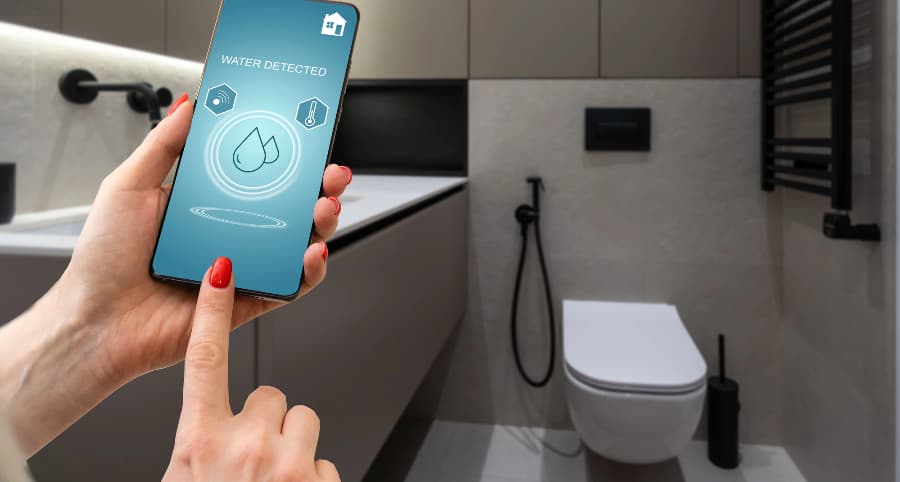How does a water sensor work and why connect one to your Dayton smart home?

One tiny leak at your house can result in significant problems and thousands in damage. You have to safeguard against this danger; luckily, there’s a simple way to accomplish this. A water sensor is an effective, simple, and affordable solution. Explore how they work and why you should incorporate water sensors into your Dayton smart home.
How water sensors safeguard Dayton homes
Water enters homes in many ways, whether from a weather-related incident, plumbing issue, appliance malfunction, or just human error. However it happens, you need to know right away, and this is how water sensors help. But how exactly do they work?
The majority of water sensors are conductive and function with a pair of electrodes. When water makes contact with the electrodes, an electrical link is established, triggering your alarm. You’ll also discover capacitive sensors that emit an electrical field. When water reaches the conductive areas of these sensors, the field is broken, and your alarm sounds. Optical sensors using infrared LED light are an additional option.
Some water sensors give you more
Certain innovative water sensors give you even more protection as they have built-in temperature sensors. This is an exceptional benefit in preventing frozen pipes. If there’s a drastic reduction in temperature, you’ll be notified right away. Taking steps before pipes rupture will shield you from water infiltration and costly repairs.
Why integrate water sensors into your Dayton smart home?
When water issues occur, you have to be alerted at once. You can reach this aim by integrating water sensors into your smart home. Whether you’re there to hear the alarm or away, you’ll get an instant update on your mobile device. As an added benefit, your 24/7 monitoring specialists will be notified. Every second is critical in a water emergency to control the destruction and interruption to your family.
Where should you put water sensors?
Any area prone to water infiltration is a suitable place for water sensors. Put them in these spots:
- Bathrooms: Attach in back of toilets or near bathtubs.
- Basements: Water often enters lower floors via damaged walls or as a result of heavy rain or faulty sump pumps.
- Near water heaters or appliances: Any water-utilizing appliance might leak over time.
- Underneath sinks: Water sensors are perfect for discovering pipe leaks in place hidden from view.
- Attics: Detect roof leaks quickly and avert costly damage.
Request water sensors with your Vivint smart home
Give your property the complete protection it deserves with Vivint’s advanced tools. Our water sensors in Dayton connect to your Vivint cell phone app to send you automatic alerts when your alarm is triggered. You also benefit from integrated temperature sensors to avoid pipe freezing. Discover all the smart home components available in Dayton by dialing (937) 888-2339 today.